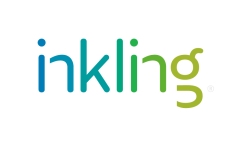
HarperCollins’ site features prominent Buy button.
Should publishers focus on selling books directly to customers, Calvin Reid’s recent piece on Publishers Weekly asks, referencing the relaunch of HarperCollins’ website. I think the answer is yes. And writers should be direct selling too.
The internet has made it possible, and in many cases necessary, to create one-stop shops for all manner of experiences and commodities. People increasingly want to visit one destination that enables them to learn, browse, and shop; and they want to do so at the destination they choose, whether that destination is a bookstore (brick and mortar or online), an etailer like Amazon, a book review community like Goodreads, a writer’s website, or a publisher’s website.
In his PW article, Reid points out, “in a time when physical retailers are under intense competition from Amazon and other online outlets, many publishers remain leery of even appearing to undermine booksellers.” This is likely the reason many houses have been loath to build out their retail and fulfillment capabilities. But the reality is all entities online are competing, in one form or another, for eyes and shares.
As Russell Grandinetti, Amazon’s senior vice president for Kindle, recently told the New York Times’ David Streitfeld, “You have to draw the box big. Books don’t just compete against books. Books compete against Candy Crush, Twitter, Facebook, streaming movies, newspapers you can read for free. It’s a new world. It’s so important not to simply build a moat around the industry the way it is now.” It’s up to each entity to create a distinct enough brand experience and offer consumers a differentiated experience.
Is this call to shore up their direct selling function a distraction from publishers’ primary role? Sure, but it’s the world we live in now. Writers have had to become publicists, marketers, and more as constrained resources have made certain publishing services a privilege reserved only for legends, veterans, and bestsellers. Agents’ roles have morphed too. Publishers also need to adjust to the new normal.
In the end, a publisher, or writer, that’s better at direct selling won’t preclude an expert bookseller from courting and keeping a consumer base. More likely, it will force all involved to become better at differentiating their services to customers and others in the publishing ecosystem. And it will make it difficult for one entity to hold the market, and industry, captive.




